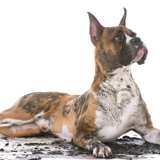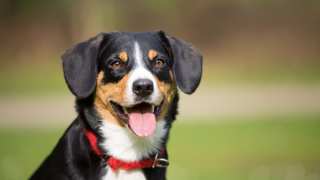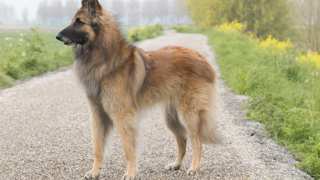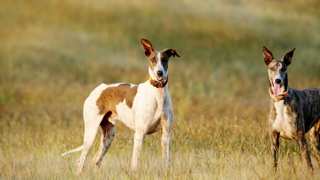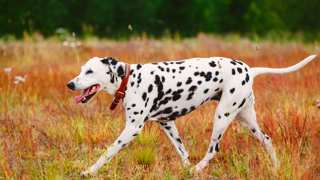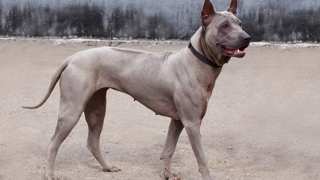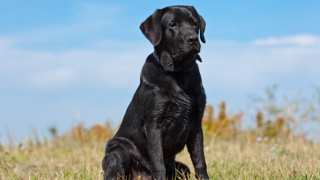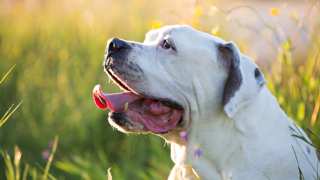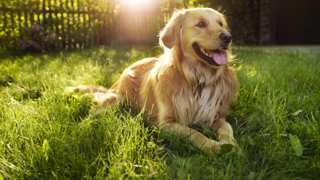Like all breeds, Boxer dog exercise is vital to its health and well-being. And as an athletic, muscular breed, daily physical activity--and lots of it--is ultra-important. These dogs will need endurance exercises such as walking or outdoor fetch, along with more strenuous activities like weight-pulling or tug-of-war that keep their muscles toned. (Suffice it to say that simply letting a Boxer play in the yard for a few minutes will not count as exercise!) Though these amounts may vary depending on the dog's age, gender, and activity level, a mature Boxer will need up to two hours of exercise daily; you can begin exercising a Boxer puppy at three months of age by taking it on short (10- to 15-minute) walks, and increase the walks' frequency and duration as the puppy grows.
It's helpful to think of these muscular Boxer dogs as canine equivalents of professional athletes, in that they need activities that increase both their endurance and their strength. In addition to the typical activities like walking or jogging, it's important to give your Boxer dog muscle-building exercise as well. One popular choice among Boxer owners is weight-pulling: you can purchase a dog harness from a pet store, attach the harness to a rope, then have your Boxer pull heavy objects like a spare tire or a log. Another muscle-building activity, one that can be done indoors (and one a Boxer is very good at!) is tug-of-war. You can use a rope or an old towel--and you can pull as hard as you want, but your Boxer will still probably win!
Of course, there are a few precautions that should be taken when exercising a Boxer. Puppies shouldn't participate in activities that include lots of jumping and running, as doing so can injure puppies' still-growing bones and joints. Hot weather, too, should be avoided if possible. Boxers are brachycephalic, meaning they have short noses that don't cool the air they breathe very well; exercising a Boxer in extreme heat will cause the dog to overheat or even suffer heat stroke. It's also important to wait at least thirty minutes after your Boxer eats to begin exercising the dog; intense physical activity immediately after a meal can give a Boxer serious digestive problems.
Precautions aside, it's incredibly important to exercise a Boxer daily. Not only is the breed highly prone to obesity, but an under-exercised Boxer will be a hyperactive whirlwind. These dogs will dig, chew, turn destructive if left alone, and generally become uncontrollable balls of energy if bored or restless. So daily physical activity is important to both the dog's sanity and your own.
A few exercise ideas:
- Walking: Two 30- to 45-minute walks per day is a good target
- Tug-of-War: Can be done indoors or out
- Dog Park: Boxers love to play with other dogs; supervision needed, as Boxers tend to "play rough"
- Weight Pulling: Use a harness and a rope attached to weighty objects
- Fetch/Frisbee: Great endurance exercise if done outdoors
- Canine Sports: Boxers excel in agility, flyball, and other competitions
When indoors, it's a good idea to give your Boxer access to one or more balls or chew toys that will allow the dog to release pent-up energy. It's also recommended that you have a consistent daily exercise schedule for your Boxer, such as walks after breakfast and dinner combined with a play period or muscle-building activity in the afternoon.
